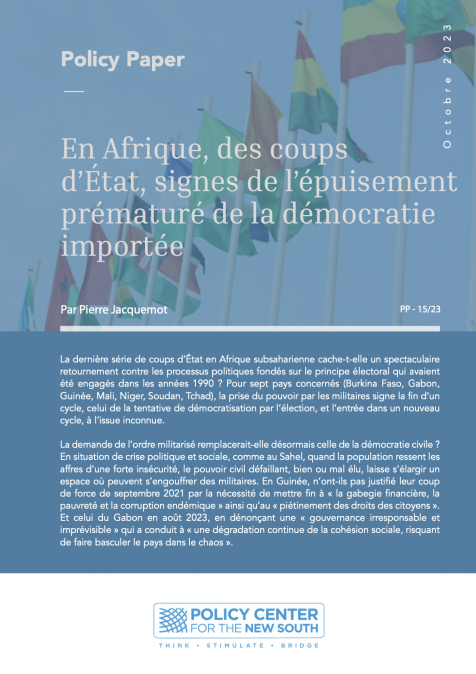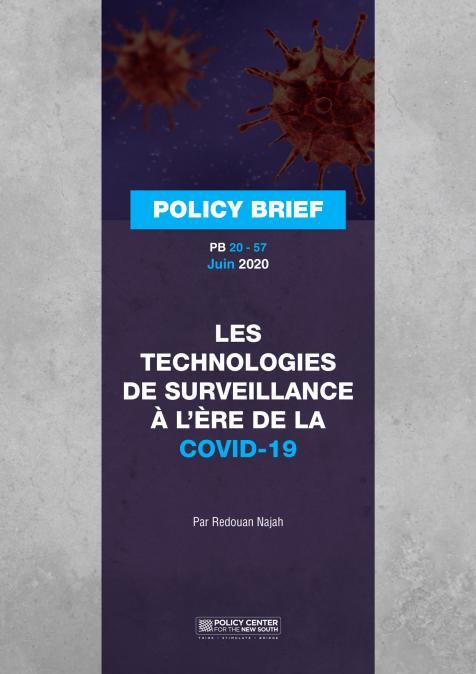Publications /
Policy Paper
La dernière série de coups d’État en Afrique subsaharienne cache-t-elle un spectaculaire retournement contre les processus politiques fondés sur le principe électoral qui avaient été engagés dans les années 1990 ? Pour sept pays concernés (Burkina Faso, Gabon, Guinée, Mali, Niger, Soudan, Tchad), la prise du pouvoir par les militaires signe la fin d’un cycle, celui de la tentative de démocratisation par l’élection, et l’entrée dans un nouveau cycle, à l’issue inconnue.
La demande de l’ordre militarisé remplacerait-elle désormais celle de la démocratie civile ? En situation de crise politique et sociale, comme au Sahel, quand la population ressent les affres d’une forte insécurité, le pouvoir civil défaillant, bien ou mal élu, laisse s’élargir un espace où peuvent s’engouffrer des militaires. En Guinée, n’ont-ils pas justifié leur coup de force de septembre 2021 par la nécessité de mettre fin à « la gabegie financière, la pauvreté et la corruption endémique » ainsi qu’au « piétinement des droits des citoyens ». Et celui du Gabon en août 2023, en dénonçant une « gouvernance irresponsable et imprévisible » qui a conduit à « une dégradation continue de la cohésion sociale, risquant de faire basculer le pays dans le chaos ».





